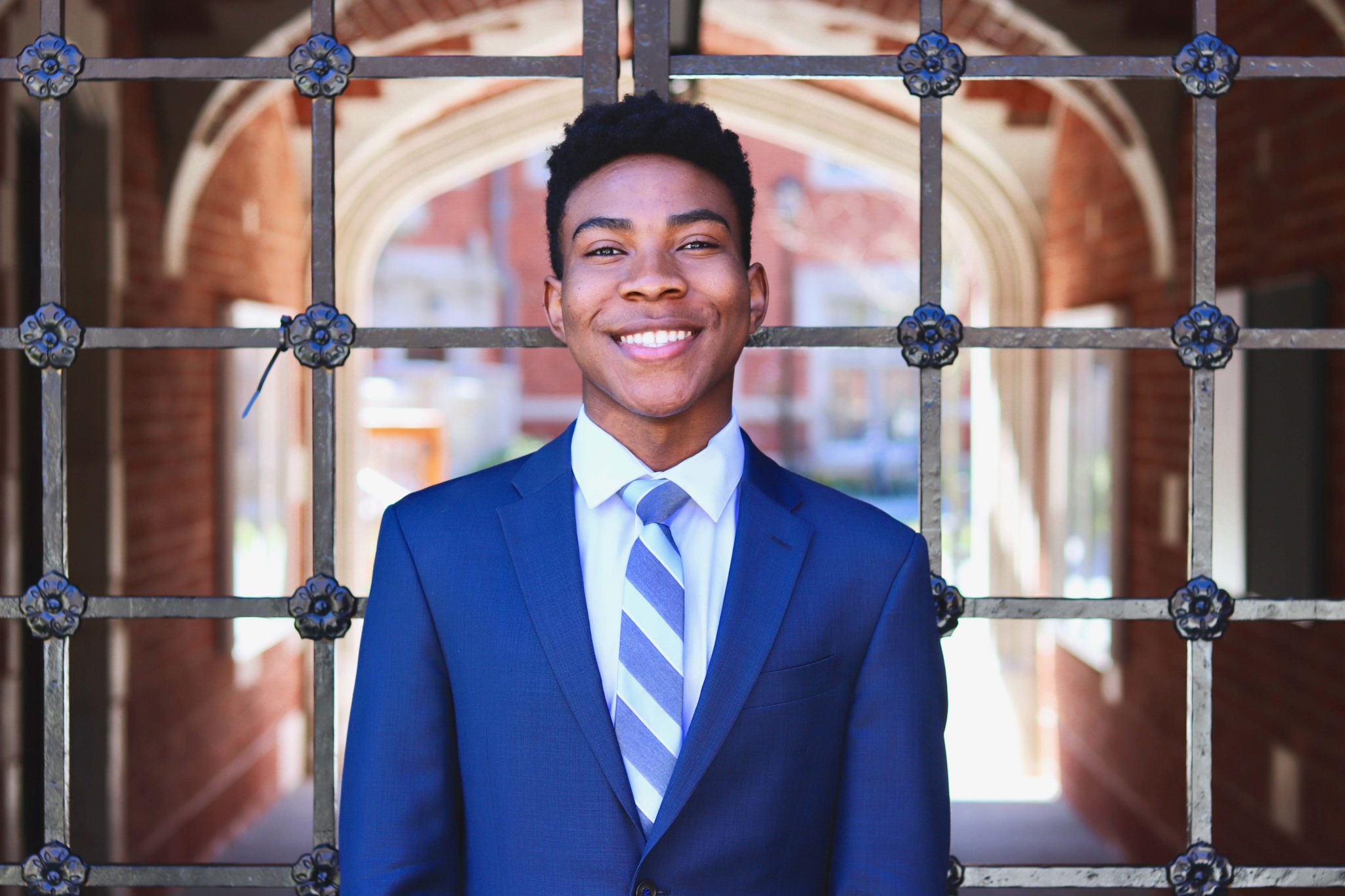
Courtesy of Kahlil Greene
Kahlil Greene ’21 will be next year’s Yale College Council president, after running uncontested in last week’s election and winning 1100 votes, or 89.72 percent of the total votes. Greene will be the first black president of the YCC.
His running mate Grace Kang ’21, who also ran uncontested, won the election for YCC vice president, claiming 1091 votes, or 88.99 percent of the votes in total. Steven Orientale ’21 will be the next YCC Events Director, having won the only contested race in the election with 607 votes, or 49.51 percent of the total. His opponent Chloe Adda ’22 received 443 votes, or 36.13 percent of the total votes. Around 14 percent of voters abstained.
“I have a plan for what I want to get done between now and the end of my term, but the most fun aspect of the YCC is that I can’t know the exact goals this organization will end up accomplishing over the next 12 months,” Greene said. “As the first black president, it is important for me to symbolize the progress that this university has made over the years, and the journey we still have ahead of us. Yale should continue working to become a more diverse and representative place. I’m grateful for the role that I will have in making that happen!”
Kang said she is similarly excited to “keep bringing positive changes to Yale.” She added that last year’s YCC President and Vice President, Saloni Rao ’20 and Heidi Dong ’20, successfully “[re-vamped] the YCC” and that she and Greene “plan to do everything [they] can to keep the momentum going.”
Greene and Kang campaigned on a platform that focuses on four points: facilitating meaningful interactions between Yale and New Haven; fostering a safer, healthier and more equitable campus culture; enhancing the quality of the University’s academics and facilities; and improving the YCC’s capacity to cater to student demands.
“Two years ago, anyone could’ve asked me where I wanted to go to college, and I wouldn’t have even thought to name off Yale,” Kang said. “It wasn’t a place or a community that I thought I’d ever be a part of, and I’m so honored to be in a position now where I can impact the campus community and culture in positive ways through my role on the YCC.”
About 22 percent of the Yale undergraduate population, or 1,226 students, voted in this year’s election — a considerable decrease in voter turnout compared to last year’s election, which saw 43 percent.
Rao said that because this election was far less competitive than last year’s, the decrease in voter turnout did not “surprise [her] too much.” Last year, five candidates ran for YCC presidency, three ran for vice presidency and one for Events director.
“The most important thing that you can [hope for] in elections is an extremely qualified team to take on [the] responsibility of next year’s YCC and represent the voices of the student body,” said Rao. “I can honestly not think of any better [group of people].”
Though Orientale has no specific experience with the YCC Events Committee, during sophomore year, he served as YCC Senator for Jonathan Edwards College and as president of the Jonathan Edwards College Council.
Although campus organizations can officially endorse candidates, no organization chose to endorse either candidate for the Events Director position.
“I am excited to be able to work on bringing the student body a more transparent and accountable YCC and on bridging together Yale’s campus through events,” Orientale said.
The new YCC officers will not officially begin their term until the end of the semester, but the transition has already begun and will continue over the next few weeks.
Rao added that although the outgoing YCC administration traditionally does not work on any initiatives during the transition period, this year, they still have several more projects to push through and that they are “far from done.”
Reilly Johnson ’22 won the election for Sophomore Class Council president, defeating candidates Daniel Guerra ’22 and Charlie Loitman ’22 with 241 votes, or 40.78 percent of the total.
The next Junior Class Council President will be Heather Foster ’21, who was also this year’s Sophomore Class Council president. She won against three other candidates, claiming 238 votes, or 47.50 percent of the total.
Most of the races for YCC Senate positions were uncontested, with three residential colleges only having one candidate run for the two positions and four colleges having just two candidates. No candidates ran for the Davenport College Senate positions. Still, Dong expressed excitement to see the number of contested Senate races.
“It’s encouraging to me to know that more students are interested in getting involved with the YCC,” Dong said. “We had an impressive turnout for those races; even the ones that were uncontested saw a good number of students voting.”
A run-off election will occur for the remaining contested Silliman seat from April 16-17, and another election will occur in the fall to fill other empty seats in the YCC Senate.
Alayna Lee | alayna.lee@yale.edu .







